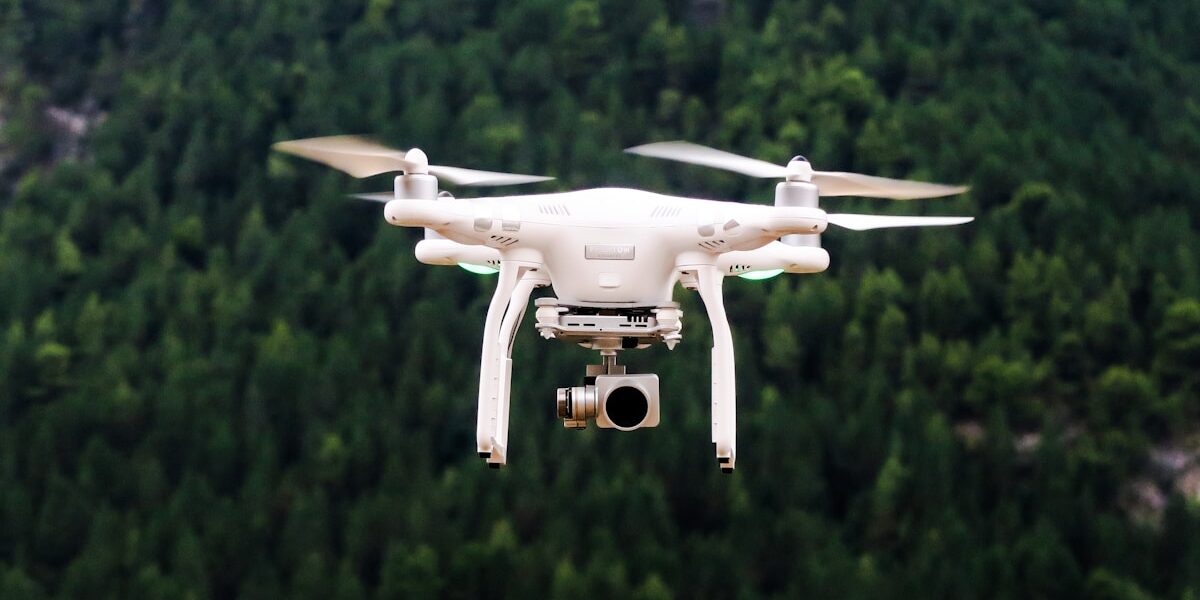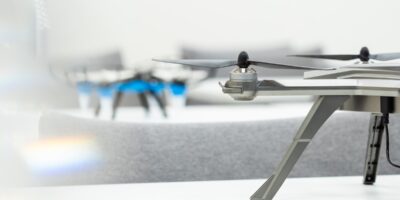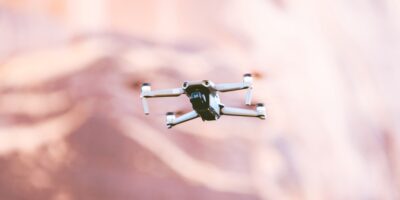Drone Jobs: New Frontiers in Employment
Drones are transforming various industries, creating new job opportunities. These flying devices go beyond recreational use. They enable tasks that were once time-consuming or dangerous for humans. As a result, many sectors have begun to integrate drones, leading to a surge in drone-related jobs.

Surveying and Mapping
Drones are revolutionizing surveying and mapping. They capture high-resolution images and generate accurate topographical maps. This technology is used in several fields including construction, agriculture, and environmental studies. Surveyors can now gather data faster and with greater precision. This has led to the need for drone operators, data analysts, and GIS specialists.
Agriculture
Modern agriculture benefits significantly from drone technology. These devices monitor crop health, manage livestock, and optimize resource usage. They provide farmers with vital information on soil health and crop conditions. Drones equipped with multispectral sensors can detect plant diseases early. This precision agriculture helps in increasing yields and reducing costs, creating roles for drone pilots and agricultural technologists.
Photography and Videography
The creative industry has embraced drones. They offer unique perspectives for photography and videography. Drones capture stunning aerial shots, widely used in advertising, film, and real estate. High-quality content is in demand, making drone operators and aerial filmmakers valuable assets. Creativity paired with technical skill opens many opportunities in this sector.
Delivery Services
Drone delivery services promise faster and more efficient logistics. Companies like Amazon and Google are investing heavily in this technology. Drones can deliver packages, medical supplies, and food, reducing delivery times significantly. This innovation drives the demand for logistics managers, drone pilots, and maintenance technicians. Regulatory experts are also essential to navigate complex legal landscapes.
Inspection and Maintenance
Industries like energy, infrastructure, and telecommunications use drones for inspection and maintenance. Drones inspect power lines, wind turbines, and cell towers, accessing hard-to-reach areas safely. They help identify defects early and thus prevent accidents. These applications require skilled drone pilots, data analysts, and engineers. Expertise in handling and interpreting sensory equipment attached to drones is crucial.
Emergency Services
Emergency services increasingly rely on drones for their operations. These devices provide aerial views in disaster-hit areas, aiding search and rescue missions. Drones equipped with thermal cameras can locate missing persons or assess fire spread. They also help in delivering life-saving supplies to inaccessible areas. This sector sees a rise in demand for drone operators, rescue coordinators, and technical support staff.
Environmental Conservation
Environmental conservation organizations use drones for monitoring and research. They track wildlife, map habitats, and monitor ecological changes. Drones provide valuable data without disturbing wildlife. Conservationists use this data to make informed decisions on protecting endangered species and habitats. This field offers opportunities for drone pilots, data analysts, and environmental scientists.
Law Enforcement
Law enforcement agencies use drones for surveillance and crime scene investigation. They provide real-time aerial footage during operations and help in crowd monitoring. Drones can access areas difficult for patrol units. They are valuable tools for evidence gathering and situational awareness. This use of drones requires skilled operators, crime analysts, and technicians.
Real Estate
The real estate market benefits greatly from drone technology. Aerial footage of properties offers potential buyers a comprehensive view. Drones create virtual tours, enhancing the property listing experience. This approach saves time and highlights unique property features. The sector needs drone photographers, videographers, and marketing specialists.
Education and Training
With the growing demand for drone operators, education and training institutes have sprung up. These schools offer courses on drone piloting, safety protocols, and industry regulations. Hands-on training programs and certifications are essential for aspiring drone professionals. Trainers, curriculum developers, and certification specialists are in high demand.
Security and Surveillance
Security firms use drones for surveillance and perimeter monitoring. They provide a bird’s-eye view, enhancing security measures for large areas. Drones help in real-time threat assessment and crowd control. This application creates roles for security analysts, drone operators, and technical maintenance staff.
Entertainment and Media
The entertainment industry leverages drones for live event coverage and filmmaking. Drones capture dynamic shots that were otherwise impossible. They are used in sports broadcasting, music festivals, and live shows. This sector requires creative drone pilots, cinematographers, and scriptwriters who can incorporate aerial footage into storytelling.
Research and Development
Innovation in drone technology continues to evolve. Companies invest in research and development to enhance drone performance and applications. R&D teams work on improving battery life, sensor capabilities, and autonomous functions. This field offers opportunities for engineers, software developers, and project managers.
Maritime Operations
Drones assist in maritime operations like ship inspections and ocean monitoring. They can survey large marine areas for research or environmental monitoring. Drones help in monitoring illegal fishing activities and assessing ship damage. This niche requires drone operators, marine biologists, and maritime safety experts.
Retail
Retail giants explore the use of drones for inventory management and customer deliveries. Drones perform stock checks more efficiently than manual labor. They also aid in transporting goods within large warehouses. Retail companies seek logistics coordinators, drone operators, and systems engineers for these tasks.
Healthcare
Drones provide innovative solutions in healthcare. They deliver medical supplies to remote areas and transport lab samples quickly. In emergencies, drones can deliver defibrillators or first aid kits to accident sites. This sector needs drone pilots, logistics experts, and healthcare professionals familiar with drone technology.
Insurance
Insurance companies use drones for property assessment and damage evaluation. After natural disasters, drones assess large areas quickly, providing detailed reports. This speeds up the claims process and ensures accurate damage assessment. Insurance firms hire drone operators, claims adjusters, and data analysts for these applications.
Public Infrastructure
Governments use drones to inspect public infrastructure such as bridges, roads, and railways. These inspections ensure safety and identify maintenance needs early. Drones provide cost-effective and efficient monitoring solutions. This leads to job opportunities for drone pilots, civil engineers, and infrastructure planners.
Forestry
Forestry management benefits from drones in several ways. They monitor tree health, map forest areas, and track illegal logging activities. Drones equipped with LiDAR sensors provide detailed forest inventories. This creates roles for drone operators, forest managers, and environmental analysts.
Marketing and Advertising
Marketing strategies enhance with drone technology. Aerial footage creates captivating promotional content. This approach is used in tourism, real estate, and product launches. The demand for creative professionals who can operate drones and develop marketing content is high.
Disaster Management
Drones play a critical role in disaster management. They provide real-time data during natural disasters and assess damage quickly. Drones help in planning rescue operations and delivering essential supplies. This field requires drone pilots, disaster response coordinators, and data analysts.
Event Management
Drones are used extensively in event management for tasks like crowd monitoring and capturing aerial footage. They provide insights into crowd behavior and enhance security measures. Event planners use this footage for promotional purposes. Job opportunities in this sector include drone pilots, event managers, and marketing professionals.
Mining
The mining industry uses drones for site surveys, mapping, and monitoring. Drones provide detailed data on mining sites, enhancing safety and efficiency. They also help in tracking progress and environmental impact. Mining companies require skilled drone operators, geologists, and environmental scientists.
Transport and Logistics
In the transport sector, drones assist in traffic monitoring and accident assessment. They provide aerial views of traffic conditions, helping in managing congestion. Drones also play a role in inspecting transportation infrastructure. This sector needs drone pilots, traffic analysts, and logistics coordinators.
Drones continue to open up varied employment opportunities across industries. Their versatility and ability to perform complex tasks efficiently have made them indispensable tools in modern work environments. The demand for skilled professionals in this field is rising, signaling a promising career path for those interested in drone technology.




Subscribe for Updates
Get the latest articles delivered to your inbox.
We respect your privacy. Unsubscribe anytime.